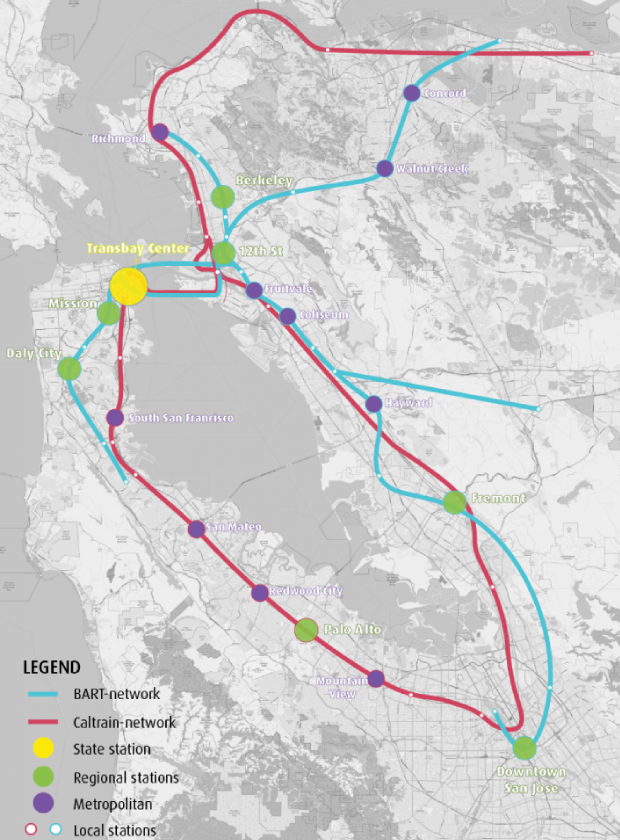Our Projects
Sustainable Mobility in the Bay Area: The Dutch Approach
In February of 2018, Mobility Flow, in partnership with the Dutch Consulate and Goudappel Coffeng hosted the event “Sustainable Mobility in the Bay Area: The Dutch Approach”. This event brought together representatives from 18 different Bay Area cities to discuss the implementation of Dutch transportation strategies in the US.
Over the day long event, Mobility Flow consultants, Bas Govers, Lucas van der Linde, and Derek Taylor gave presentations on the success of the Dutch transportation system and the potential benefits to the Bay Area, an area that is of similar size to the economic center of the Randstad in the Netherlands. In these talks, the Mobility Flow team were able to use the MoveMeter to show the annual benefits of planning a hierarchy of mobility hubs in the Bay Area and achieving a 30% auto-mode split within the catchment zone of each hub.
Due to the success of this event, a similar lecture series was held by Mobility Flow in the Puget Sound Region where the same method of hierarchy of mobility hubs was applied to the northwest region.
Too Little Too Much – Resilient By Design Bay Area
In early 2019, Mobility Flow worked together with a team of Dutch experts to compete in the San Francisco Bay Area’s Resilient by Design challenge. The report details the recommendations, lessons learned, and toolsets from the Netherlands in the fields of water management, sustainabile mobility, area development, and inclusive design The report, “Too Little + Too Much” was presented to California legislators during the Global Climate Action Summit and later to Senator Scott Wiener. The report is a spin-off of the Resilient By Design Bay Area Challenge, where 10 teams of international experts developed ideas for existing problems in the Bay Area.
Developing strategic networks with the MOVE-meter
Having an insightful tool at hand in workshops allows policy makers to quickly assess the benefits of changes in the network system; therefore, accelerating the right choices for implementation. For the city council of Austin (Texas) Goudappel Coffeng and partner MOVE Mobility facilitated planning workshops on new bicycle infrastructure. With the MoveMeter, tool, we were able to visualize and quantify how bicycle infrastructure can affect the transportation system as a whole. These strategic insights enables planners to modify their thinking and change planning priorities as needed. In Austin, planners found that instead of a focus on the riverside area, a better approach would be to substitute local car trips by cycling trips on the north-south corridors. These corridors are currently in the process of a full redesign towards an urban ‘Dutch Style’ street.
– Think Bike workshops
– Quick impact traffic and transport modelling
– Improving urban attractiveness by boosting cycling
Client: City of Austin | 2016.
Local Dutch Practices in San Jose
In addition to the regional work conducted for the San Francisco Bay Area and Puget Sound, Mobility Flow has led workshops to present the way local Dutch strategies can be applied to the US context. In San Jose, the Mobility Flow team introduced local strategies such as ABC Zoning and Mobility Environments and led a team of local planners in a workshop to rethink their cities’ mobility.
Smart moving Memphis
In 2015, the Cycling Fellow Program for US Cities gained a patron in the Netherlands. The Dutch Cycling Embassy, in cooperation with the Dutch Embassy in the US, is carrying out this initiative. The objective is to facilitate an exchange between Dutch experts and their US counterparts, starting in four cities — Denver, Memphis, Indianapolis and Pittsburgh.
In Memphis, the Cycling Fellows are Kyle Wagenschutz (Memphis, now People for Bikes) and Tonny Bosch (MOVE Mobility). The program began an initial six month run that included exchange visits to Netherlands and Memphis. Memphis still has a lot of work ahead to become a ‘cycling city’ and after a good start in recent years, the fellows designated a new planning approach for Memphis. The final map reflects seven projects — Jewels, that will lift the whole urban area to a higher cycling level. The initiative is not only about infrastructure and vehicles; organization and communication/promotion is a big part of it.
Client: Dutch Embassy in USA and DCE | 2015
Bike network in Washington DC
In 2016, safe cycling became a priority in Washington’s West End and within the next three years a large-scale cycling network was implemented in Washington’s West End District, the western part of the city centre.
On behalf of the Dutch Cycling Embassy and the Netherlands Ministry of Foreign Affairs (the Netherlands Embassy in Washington), Sjors van Duren from the Province of Gelderland, Marcel van Lieshout from MOVE Mobility, and Richard ter Avest from Goudappel Coffeng travelled to Washington, where they joined forces with 40 local and national planners and designers to share Dutch expertise on traffic safety using the ThinkBike concept.
Then US Secretary of Transportation, Anthony Fox, who was in Europe at the time, said he was very impressed by everything that’s going on in the infrastructure sector in the Netherlands. Having recently visited Copenhagen, Amsterdam and Oslo, he was particularly enthusiastic about how different transport modes coexist peacefully in the Netherlands. He saw that cycling safety had a high priority and supported the initiative being launched in Washington.
Client: Washington DC | 2016.



